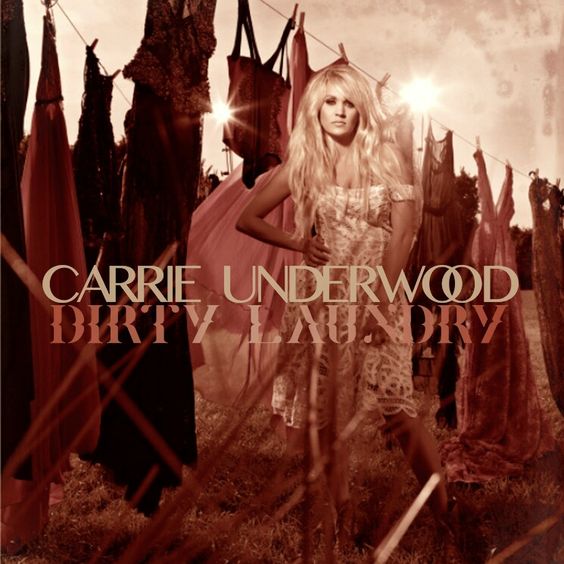Apparently, Carrie Underwood hates cheaters and loves great imagery.
Much like her mega-hit “Before He Cheats” (which you can read about HERE), Carrie finds herself betrayed by a no-good boy. And, again, she ain’t putting up with that mess.
“Dirty Laundry” has a lot of great things about it- strong production, powerful vocals, a catchy melody and an empowering lyric. But for now, I want to focus on the songwriters’ use of imagery. Writers Hillary Lindsey, Zach Crowell and Ashley Gorley know what they’re doing, ya’ll.
Right off the bat, the songwriters hit us with images…
“That lipstick on your collar, well, it ain’t my shade of pink
And I can tell by the smell of that perfume, it’s like forty dollars too cheap
And there’s a little wine stain on the pocket of your white cotton thread
Well, you drink beer and whiskey, boy, and you know I don’t drink red”
This verse does a few important things – and it does them well.
The images show us the situation- they don’t just tell it. Showing is so much more powerful than telling. The writers could’ve just said, “I caught you cheating on me.” And while we’d understand the information, it’s not emotionally engaging or particularly entertaining.
Instead, the writers bring us alongside Carrie as she discovers the clues to his infidelity. We see the pink lipstick, smell the cheap perfume, see the wine stain, etc.
Showing us the clues involves us as listeners.
We discover the clues at the same time Carrie does, and we come to the same conclusion. Don’t believe me? Listen again and tell me when Carrie says the word “cheat” or “cheated.” She doesn’t. She doesn’t have to. The pictures are the proof. We don’t have to wonder how she knows he cheated or even if she’s mistaken. Nope. We’ve seen the evidence and can pronounce him guilty.

Also, the imagery tells you more about the characters than just “he’s a cheater.”
You learn that he drinks beer and whiskey, but not wine. We learn that Carrie’s character wears pink lipstick, likes quality (at least fairly expensive) perfume and drinks white wine- but not red.
I already feel like I’m getting to know these characters- and we’re just a few lines into the song! And we know them not because the songwriters TOLD us about them, but because they SHOWED us about them.
That’s some strong songwriting.
(Side Note: Normally if a man does Carrie wrong, she resorts to either property damage or murder. This dude definitely gets off easy!)
Strong imagery like we find in “Dirty Laundry” can really make a song stand out. If you want to build YOUR imagery skill so that YOUR songs stand out, I have a great opportunity for you. In Songwriting Pro’s upcoming live online workshop, I’ll reveal several techniques that I and other pro songwriters use to create killer imagery.
CLICK HERE IF YOU WANT YOUR SONGS TO STAND OUT.
God Bless and Enjoy the Journey,
Brent
Brent Baxter is a hit songwriter with cuts by Alan Jackson, Randy Travis, Lady Antebellum, Joe Nichols, Gord Bamford, Ruthie Collins, Ray Stevens, and more. He’s written a top 5 hit in the US and a #1 in Canada… so far.







